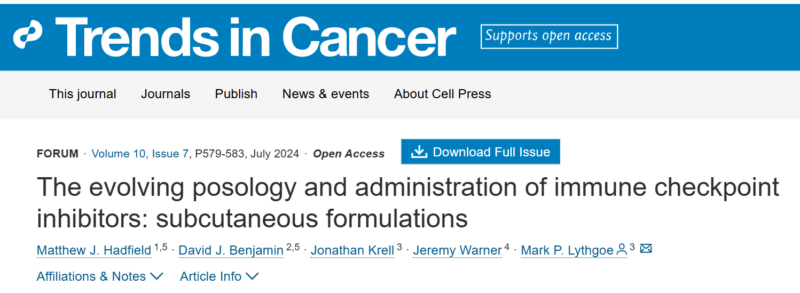Mark Lythgoe, Clinical Research Fellow in Medical Oncology at Imperial College London, shared a post on LinkedIn:
“On the 27th December 2024 the FDA approved new subcutaneous formulation of nivolumab across all approved indications (27 indications across 11 different cancers) based on data from the phase 3 CHECKMATE-67T trial (NCT04810078).
‘FDA approves nivolumab and hyaluronidase-nvhy for subcutaneous injection’
This follows the FDA approval of subcutaneous atezolizumab in September 2024. Notably, both new subcutaneous formulations use similar delivery systems based on Halozyme.
Does this innovation have the potential to significantly increase access to immune checkpoint inhibitors both in high- and low-income countries?
With other subcutaneous immune checkpoint inhibitors in development (e.g. pembrolizumab) will this become the preferred route of administration or will this suppress the development of biosimilars when exclusivity ends?”
Authors: Matthew Hadfield, David Benjamin, Jonathan Krell, Jeremy Warner, Mark Lythgoe.

More posts featuring Mark Lythgoe.
Mark Lythgoe is a Clinical Research Fellow in Medical Oncology at Imperial College London and a Specialist Registrar/Academic Clinical Fellow at Imperial College Healthcare NHS Trust.
His research focuses on oncology therapy and drug development, in collaboration with global pharmaceutical companies to develop new cancer therapies. His other research interests include early-phase oncology studies, biomarker development, intra-tumoral microbiome analysis, Mendelian randomization, and meta-data analysis.


